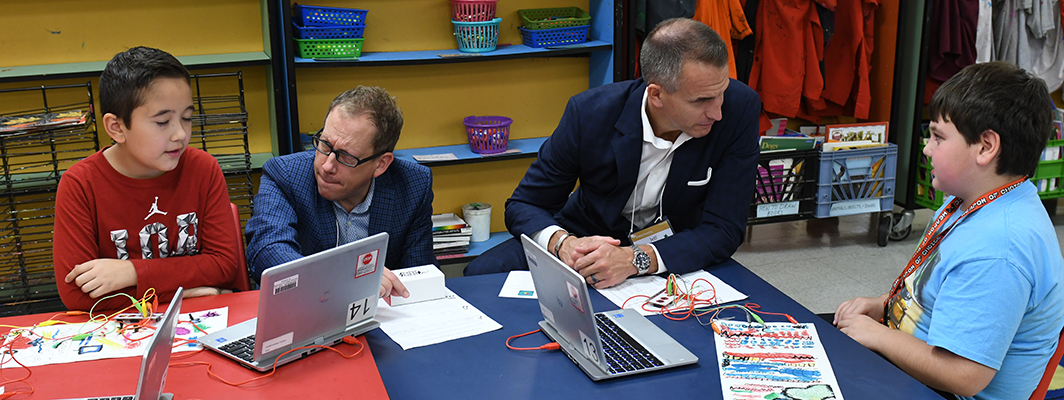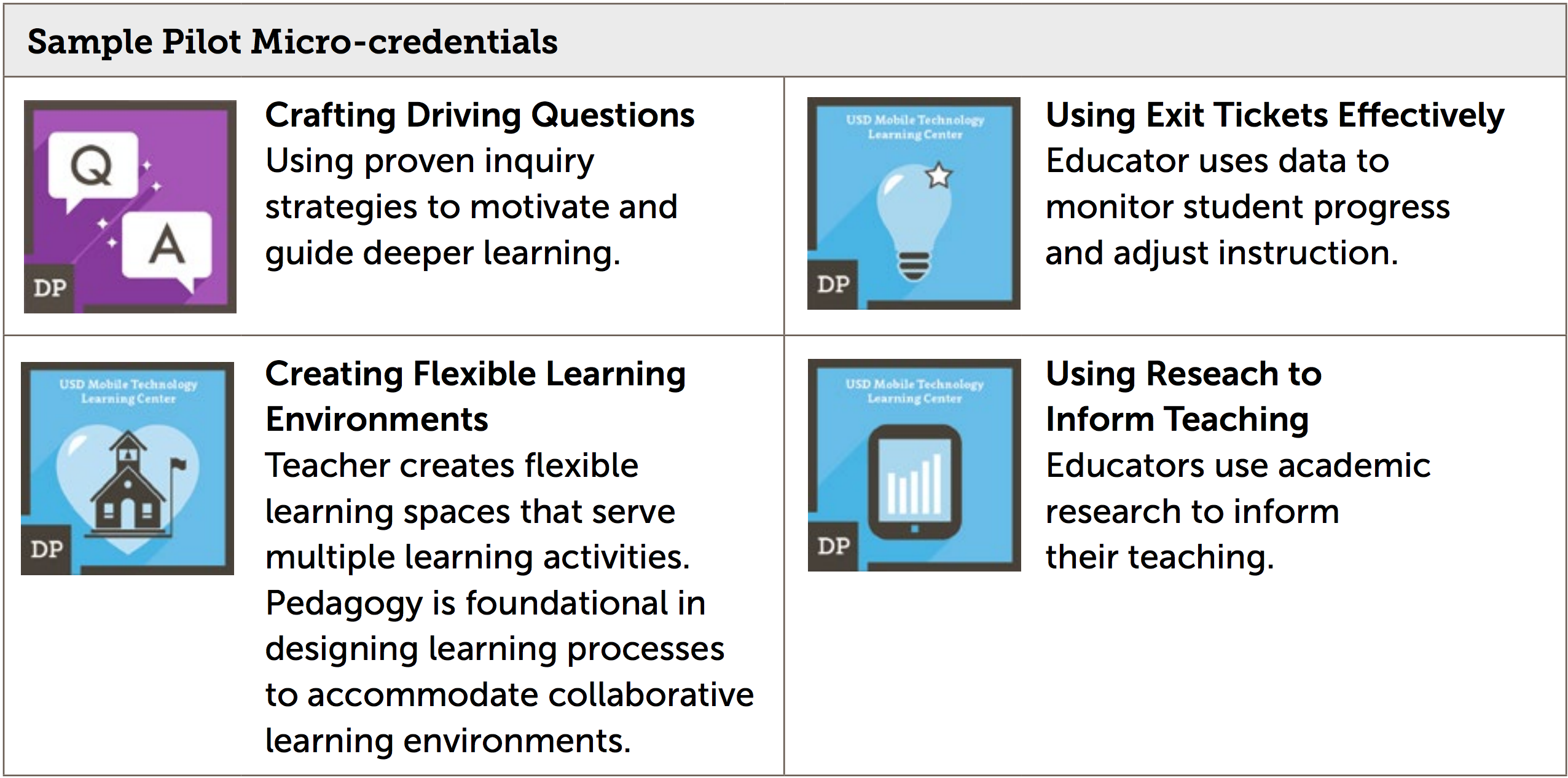
has prioritized a culture of technology-enriched student learning through its Students and Teachers Advancing Tomorrow Initiative (S.T.A.T.). The central mission of S.T.A.T. is to transform BCPS into a student-centered, personalized learning environment.
To affect this change district-wide, BCPS needed to shift professional learning for educators to a more competency-based, autonomous model. BCPS leadership thought educators would be better prepared to apply S.T.A.T. principles in the classroom if teachers reinforced the skills for themselves. Micro-credentials provided BCPS the on-ramp to do so.
BCPS’ Department of Digital Learning partnered with Digital Promise to roll out a micro-credential pilot during the 2015-2016 school year focused on “S.T.A.T. teachers,” in-school professional learning coaches whose primary function is to support learner-centered professional development in their assigned schools. Classroom teachers engaged in micro-credentials in Professional Learning Communities alongside their S.T.A.T. teacher. BCPS’ micro-credential pilot worked in tandem with the professional learning program already in place through the Office of Instructional Technology.
The 24 micro-credentials offered in the pilot aligned with BCPS’ S.T.A.T. vision and articulated the competencies needed to engage and support students’ individual needs in the S.T.A.T. digital learning environment. To support the robust role an educator plays in the S.T.A.T. environment, the micro-credentials BCPS selected had stakes in every part of a teacher’s day, both in and out of the classroom, from developing student portfolios to co-planning with other teachers.

The core mission of the S.T.A.T. initiative’s is to empower students to become active participants in their own learning through customized educational experiences. Micro-credentials provided BCPS educators an opportunity to experience that same shift in empowered learning.
“You’re really responsible for learning on your own with micro-credentials,” Jennifer Madrid, a S.T.A.T. teacher at the Rosedale Center, said. “It’s very, very different than any other [professional development]. The element of implementation being put on the educator was very different – in a good way. It was empowering.”
Micro-credentials can also convert to continuing professional development credits (CPD) for BCPS educators. CPDs can count towards a Master’s degree equivalency and salary advancement as well as teacher certification renewal. Every two BCPS approved micro-credentials earned can fulfill one Maryland State Department of Education CPD credit.
BCPS is committed to a complete shift in how student and educator learning relate and strengthen one another in the digital environment. By earning micro-credentials, BCPS teachers are able to engage in self-driven and technologically facilitated learning experiences in line with S.T.A.T., while also gaining recognition for their ability to execute classroom practices that support the S.T.A.T. environment. According to Billy Burke, Chief of Organizational Development at BCPS, educator micro-credentials help answer the question now in front of BCPS.
“How can we measure how teachers facilitate a classroom that requires students to take ownership for their own learning – that we’ve taught kids how to learn, not so much the content, because content changes constantly, but how to do learning on their own?” Burke said. “We aren’t there yet, but micro-credentials are helping us think through how to get there.”
Learn more about this micro-credential pilot at Baltimore County Public Schools by reading the complete case study in Micro-credentials: Igniting Impact in the Ecosystem. You can start your own micro-credential journey by visiting our platform.